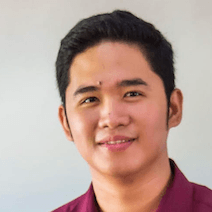SUMMARY
This is AI generated summarization, which may have errors. For context, always refer to the full article.
![[OPINION] Using sociology to make sense of the coronavirus pandemic](https://www.rappler.com/tachyon/r3-assets/612F469A6EA84F6BAE882D2B94A4B421/img/67DEC0993D6E4328B8869D40984649D3/coronavirus-and-sociology-march-24-2020.jpg)

It is apparent that the coronavirus pandemic is trouble for every individual. But there is a caveat to this.
Sociologist C. Wright Mills proposes that our personal troubles should be understood in light of public issues. More often than not, we do not link our personal troubles with the issues of society as a whole. We might think that our personal troubles – in this case, safety from the virus – can be solved through our individual coping mechanisms alone. But one thing is certain: the coronavirus is a public issue.
But the mere recognition of the issue as a public concern is just the beginning. Making sense of this phenomenon is another task. German sociologist Ulrich Beck’s notion of “risk society” will be helpful here.
He describes the contemporary world as one where people, governments, and corporations are increasingly mindful of the experience of risk in different aspect of our lives, including health. He says that in the event of any world catastrophe, the impact would be damaging and difficult to contain. We see this social reality in the increasing number of deaths worldwide and in the different measures, rules, and regulations imposed by different states.
How, then, should we deal with the phenomenon of the coronavirus as a public issue and a global risk?
There are 3 main responses to risks that Beck mentions – denial, apathy, or transformation. By denial, we behave as if the risk does not exist. By being apathetic, one may acknowledge the risk without responding to it. Given the reality and gravity of the situation, neither of those two can save us. This leaves us with transformation. By this, he meant taking collective, global action. (READ: Volunteer your skills during the lockdown through these initiatives)
How exactly can we realize this collective action if we are under quarantine and our actions are limited in the spaces of our own homes? At the surface, it may seem that our individual efforts are purely private, personal, and not at par with that of volunteer groups, businesses, and the state. But when we stay at home as advised by the medical experts; when we stop spreading fake news about the virus that fosters fear and confusion; when we control ourselves from flaunting our lavish lifestyles on social media while others are in peril; and when we are being vigilant about the actions of our leaders to ensure accountability, we are doing a huge favor not just for ourselves but for other people as well. (READ: LIST: How to help healthcare workers, frontliners during coronavirus pandemic)
As different sectors of society make adjustments amid this pandemic, so should every Filipino family. Indeed, the safety of our loved ones is our immediate concern, which in no way should be undermined. And although the coronavirus is a global risk phenomenon, this should not lull us into thinking that our individual efforts are insignificant. Rather, we must begin with the kind of mind that links our personal circumstances with the public experience. Ultimately, the only way to face the present threat is through collective and transformative actions. – Rappler.com
Prince Kennex R. Aldama is an assistant professor of sociology at the Department of Social Sciences, UP Los Baños.
Add a comment
How does this make you feel?
There are no comments yet. Add your comment to start the conversation.